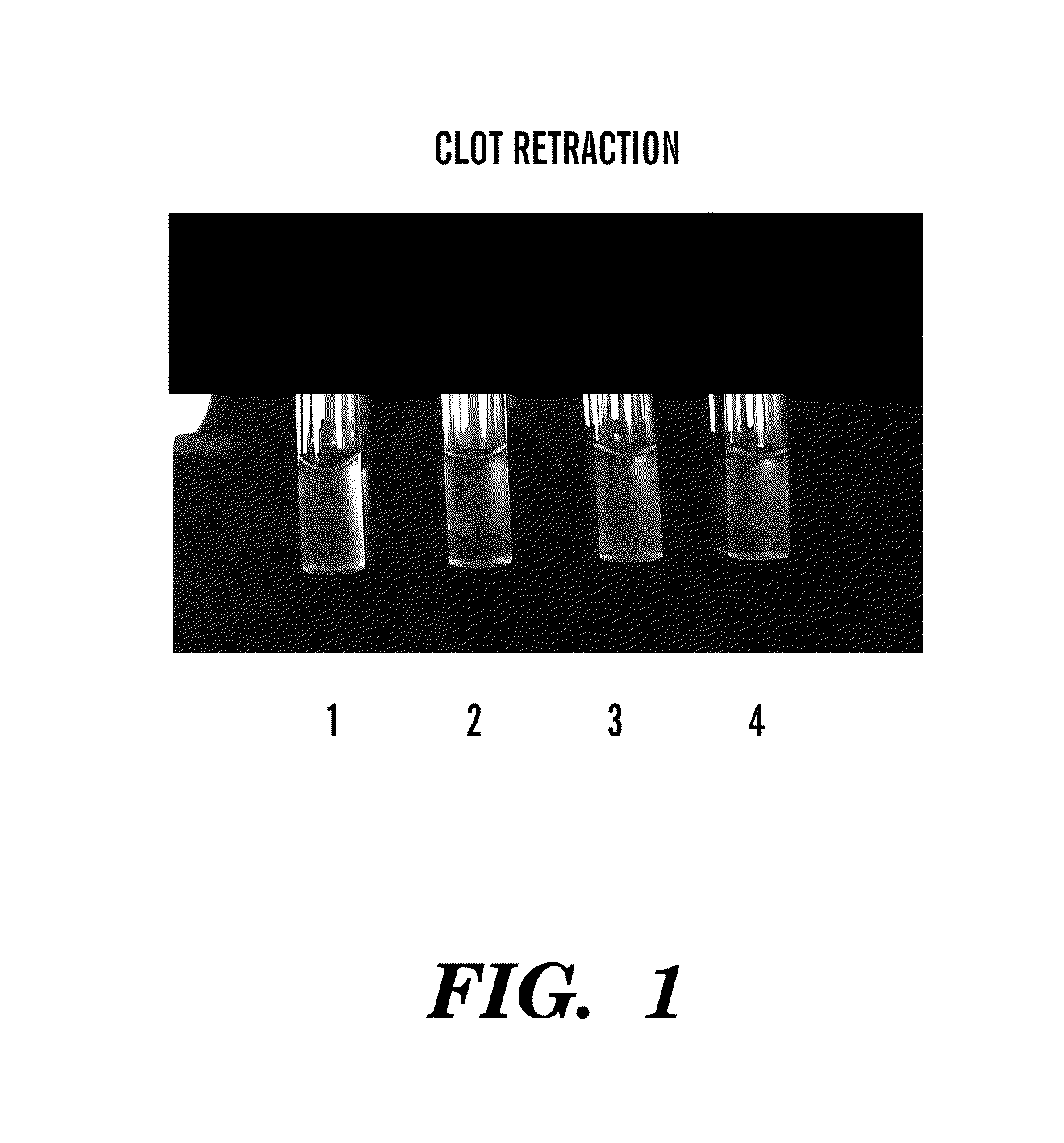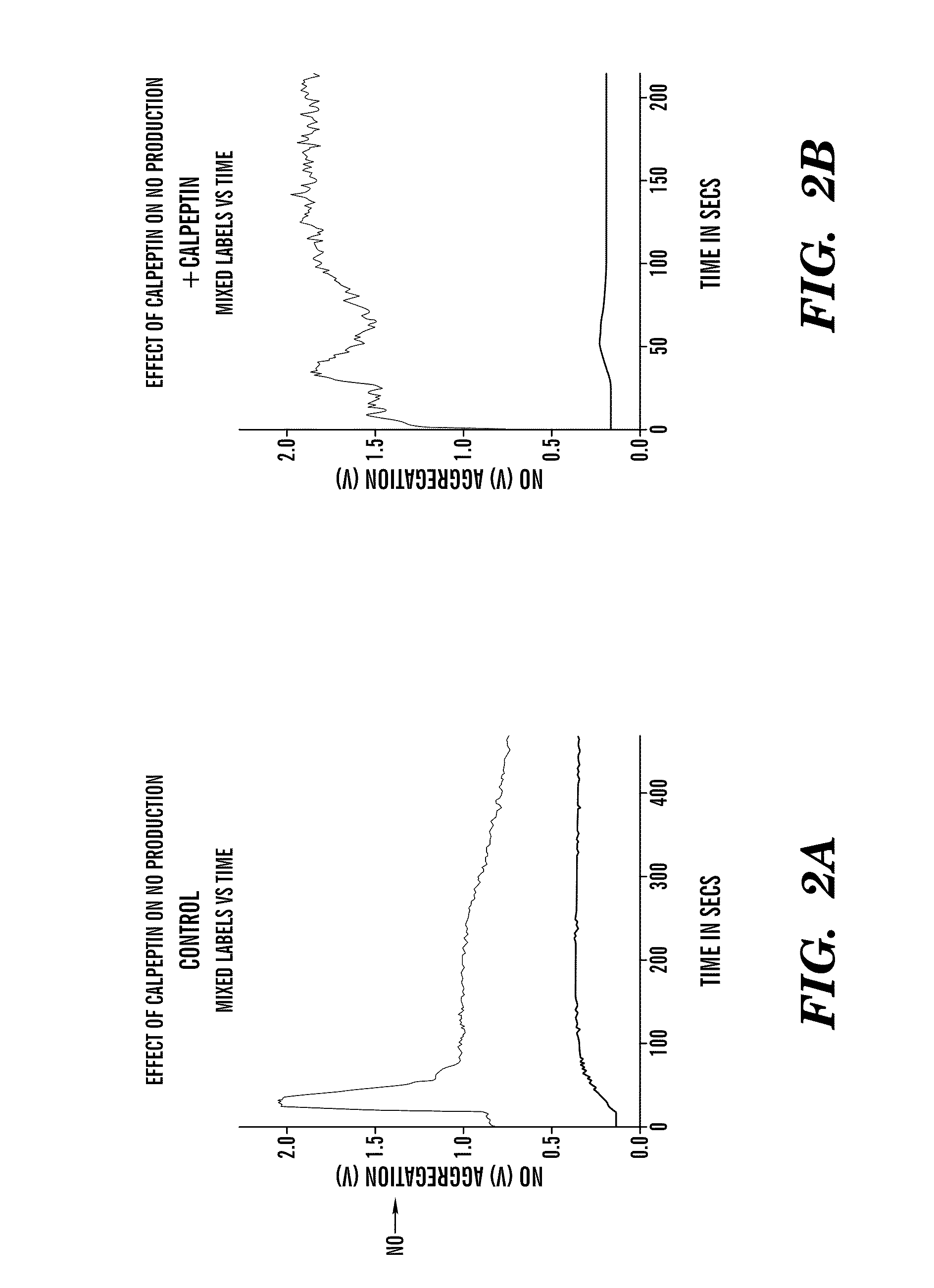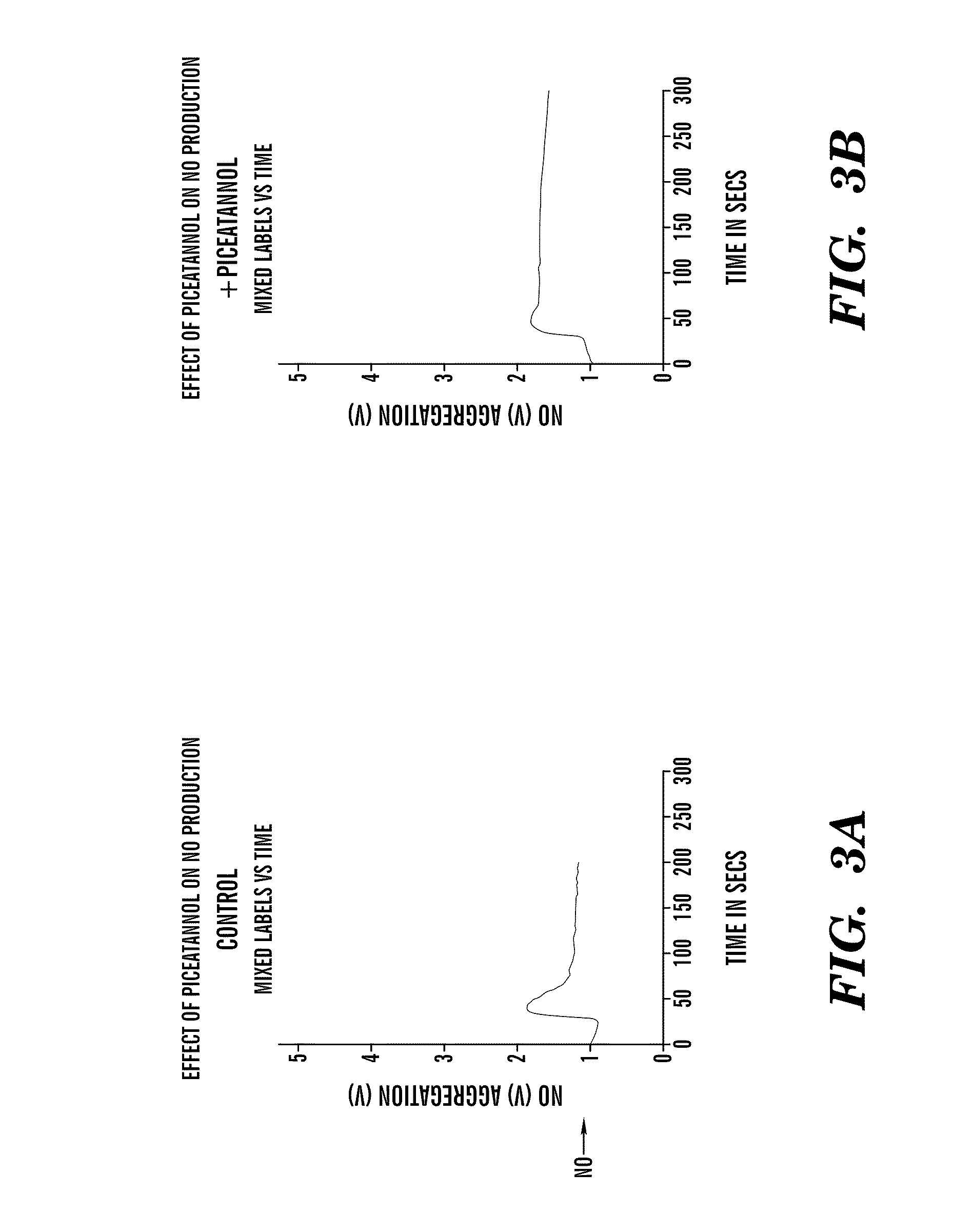Methods for identifying compounds for treatment of thrombotic condition
a thrombotic condition and compound technology, applied in the field of identifying compounds for treating thrombotic condition, can solve the problems of ischemic necrosis of the tissue supplied by the artery, morbidity and mortality, disease states, etc., and achieve the effect of promoting fibrinolysis and treating or preventing thrombosis
- Summary
- Abstract
- Description
- Claims
- Application Information
AI Technical Summary
Benefits of technology
Problems solved by technology
Method used
Image
Examples
example 1
Inhibition of Clot Retraction
[0108]To determine the effect of the syk kinase inhibitor piceatannol and the calpain inhibitor calpeptin, the following experiments were carried out. Platelets (2×108 platelets / ml) were incubated with either piceatannol at a final concentration of 40 μg / ml, calpeptin at a final concentration of 200 μg / ml, or vehicle DMSO for 30 minutes in the dark. To each sample, fibrinogen was added to a final concentration of 300 nM, 1 mM Ca2+, and 2 mM Mg2+, 10 minutes prior to the addition of 0.5 unit / ml of thrombin. The clots were incubated for 30 minutes at 37° C. and then transferred to ice before taking photographs. Tubes: 1, vehicle control treated sample without the addition of thrombin; 2, vehicle control treated sample; 3, piceatannol treated sample; 4, calpeptin treated sample.
[0109]Piceatannol at 20 ug / ml and 40 ug / ml inhibited clot retraction where as PP2 at 10 μM did not. As shown in FIG. 1, no clot retraction was observed in tube 1 when thrombin was no...
example 2
Nitric Oxide Production
[0111]FIG. 2 shows the effect of calpeptin on NO production. Platelets at 2×108 / ml were pre-incubated with either calpeptin at final concentration 200 ug / ml or vehicle DMSO for 30 minutes in the dark. To a final volume of 0.5 ml, fibrinogen was added to a final concentration of 1 mg / ml, 1 mM Ca2+, and 2 mM Mg2+, and GPRP to a final concentration of 20 μM. The tube was placed in the NO-501 monitor to measure NO production and the platelets are stirred with a magnetic stirrer. TRAP (Thrombin Receptor Agonist Peptide) at a final concentration of 20 μM was added to start the reaction. The red line shows the platelet NO production and the blue line platelet aggregation. The readings were taken for 300 seconds (5 minutes).
[0112]Calpeptin at 200 μg / ml increased and sustained NO production. In vitro experiments have shown that increased NO production inhibited platelet recruitment. FIG. 2 showed that protease calpain inhibitor Calpeptin increased and sustained NO prod...
example 3
[0116]Anti-thrombotic agents can block or inhibit thrombus formation but they are not much effective on pre-formed thrombus to dissolve them and / or to help in fibrinolysis at t-PA or u-PA. Thus terminally full thrombus formation may cause myocardial-infarction (heart attack) and / or ischemic chest pain. The treatment for total blockage by thrombus formation is so far either angio-baloon-plasty and / or by-pass surgery. Fibrinolytic agents do not usually work as plasma plasminogen could not be converted to plasmin as active platelets at the site of thrombus formation secrete molecules such as PAI which inhibit proteolytic processing of plasminogen to generate active plasmin.
[0117]To assess the effect of piceatannol and calpeptin on the fibrinolytic effect of t-PA and plasminogen in the presence of platelets, we designed a two step procedure by modifying the fibrinolytic assay as described by Fay et al. (Blood, 83, 351-356, 1994).
[0118]First, we developed a retracted clot in th...
PUM
 Login to View More
Login to View More Abstract
Description
Claims
Application Information
 Login to View More
Login to View More - R&D
- Intellectual Property
- Life Sciences
- Materials
- Tech Scout
- Unparalleled Data Quality
- Higher Quality Content
- 60% Fewer Hallucinations
Browse by: Latest US Patents, China's latest patents, Technical Efficacy Thesaurus, Application Domain, Technology Topic, Popular Technical Reports.
© 2025 PatSnap. All rights reserved.Legal|Privacy policy|Modern Slavery Act Transparency Statement|Sitemap|About US| Contact US: help@patsnap.com



